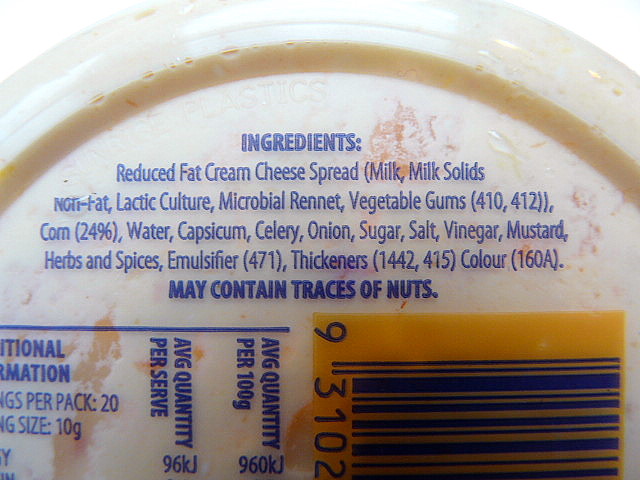Emulsifier In Food Truth vs. Fiction Revealed
Everything about the Duty of an Emulsifier in Food and Its Significance in Modern Food
Emulsifiers are critical in modern food, facilitating the mix of immiscible liquids like oil and water. Their ability to maintain mixes enhances the appearance and taste of numerous foodstuff. From salad dressings to baked products, emulsifiers play a substantial duty in both business and home cooking. Yet, the scientific research behind their feature and the future developments in their usage remain less discovered. Emulsifier In Food. What more could be uncovered about these vital culinary agents?
Understanding Emulsification: The Science Behind the Refine
Emulsification may seem like a simple culinary technique, it involves complex scientific concepts that are important for producing stable combinations of immiscible liquids, such as oil and water. At the heart of this process lies the principle of surface tension, which protects against both liquids from blending normally. Emulsifiers, substances that lower surface area stress, play a crucial role in facilitating the mix of these fluids. They possess both hydrophilic (water-attracting) and hydrophobic (water-repelling) buildings, permitting them to anchor themselves at the interface between oil and water.
When an emulsifier is presented and the mix is agitated, it develops a protective obstacle around dispersed droplets of one fluid within the other, supporting the combination. This action not only enhances appearance and mouthfeel in foodstuff but also adds to their aesthetic allure. Emulsifier In Food. Understanding the science behind emulsification is essential in modern cuisine, enabling chefs to develop a range of sauces, dressings, and emulsified dishes
Common Kinds Of Emulsifiers Made Use Of in Food
Emulsifiers are vital ingredients in the food industry, playing an important duty in maintaining mixes of oil and water. Numerous kinds of emulsifiers are generally utilized, each with special homes fit for various applications. Lecithin, stemmed from soybeans or egg yolks, is one of the most prominent natural emulsifiers, often found in dressings and delicious chocolates. Mono- and diglycerides, which are stemmed from glycerol and fats, are widely used in baked products and margarine to improve appearance and expand rack life. Another common emulsifier is polysorbate 80, favored for its capability to enhance the consistency of gelato and sauces. Furthermore, xanthan gum and guar gum function as thickening agents that also contribute to emulsification in gluten-free products. These emulsifiers are important to creating a stable, tasty item in modern-day food formulations, guaranteeing a pleasurable sensory experience for customers.
The Role of Emulsifiers in Various Food Products
A variety of foodstuff count on emulsifiers to achieve wanted textures and security. These materials promote the blending of immiscible fluids, such as oil and water, which is necessary in many refined foods. In salad dressings, emulsifiers assist preserve a consistent blend, avoiding splitting up and improving shelf life. In baked products, they add to a consistent crumb structure and moisture retention, improving general top quality.
Emulsifiers additionally play a considerable role in milk products, such as gelato and yogurt, where they maintain fat globules, making sure a smooth mouthfeel. In addition, in sauces and dressings, they improve thickness and boost spreadability. This performance is vital in the production of chocolates, margarine, and mayo, where a natural item is needed. On the whole, the use of emulsifiers in various foodstuff is integral to modern-day food production, improving security and uniformity throughout a vast array of things.
How Emulsifiers Enhance Texture and Taste

When included home right into food products, emulsifiers considerably boost both structure and flavor, producing an even more satisfying eating experience. These materials promote the mixing of ingredients that normally do not blend well, such as oil and water, causing a smoother, creamier uniformity. This not just boosts mouthfeel yet likewise enables flavors to distribute evenly throughout the item, magnifying the overall preference.

Emulsifiers in Home Cooking: Tips and Techniques
How can home cooks effectively make use of emulsifiers to improve their recipes? Emulsifiers play an essential function in attaining desirable textures and tastes in homemade recipes. For instance, using egg yolks in mayo or hollandaise sauce permits a steady emulsion, incorporating oil and water successfully. Home chefs can additionally trying out mustard, which acts as an emulsifier in vinaigrettes, guaranteeing a smooth uniformity.
In cooking, incorporating lecithin, located in egg yolks or soy, can boost dough stability and moisture retention. Furthermore, using business emulsifiers like xanthan gum tissue or guar gum can assist enlarge sauces and dressings while keeping a luscious mouthfeel.
When developing ice lotions or whipped toppings, emulsifiers can protect against ice crystal development, resulting in a smoother appearance. By mastering these techniques, home chefs can significantly elevate their cooking productions, supplying regular and enjoyable dishes that showcase the power of emulsification.
The Future of Emulsifiers in Culinary Advancement
As the cooking globe continues to progress, the function of review emulsifiers is positioned to end up being varied and increasingly innovative. Advancements in food scientific research are bring about the growth of brand-new emulsifying agents stemmed from all-natural sources, which accommodate health-conscious consumers and boost the sensory high qualities of recipes. Advancements such as plant-based emulsifiers are obtaining grip, allowing cooks to create vegan and allergen-free options without compromising texture or taste.
Furthermore, the use of emulsifiers in molecular gastronomy is broadening, allowing chefs to trying out distinct structures and discussions that astound restaurants. As sustainability ends up being a concern, the future may see a change in the direction of environment-friendly emulsifiers that lower ecological impact.
Ultimately, emulsifiers will remain to play an essential role in culinary development, bridging the gap in between practice and modernity, and permitting cooks to press the boundaries of creative thinking in their cooking areas.
Often Asked Concerns

Are Emulsifiers Safe for People With Allergic reactions?
Emulsifiers can be secure for people with allergies, depending on their certain level of sensitivities. Specific emulsifiers, acquired from allergenic sources like soy or eggs, might cause responses, necessitating mindful ingredient analysis and examination with medical care professionals.
How Do Emulsifiers Impact Food Service Life?
Emulsifiers boost food shelf life by supporting mixes, protecting against separation, and minimizing microbial growth. This security aids keep structure and taste gradually, enabling items to continue to be risk-free and enticing for consumption much longer than without emulsifiers.
Can Emulsifiers Be Derived From All-natural Resources?
Yes, emulsifiers can be originated from natural sources such as plants, eggs, and milk products (Emulsifier In Food). These all-natural emulsifiers aid support mixtures, enhancing texture and uniformity in different food applications while being favored for health-conscious customers
What Are the Environmental Effects of Emulsifier Production?
The ecological influences of emulsifier production consist of source deficiency, habitat damage, and air pollution from artificial procedures. Natural emulsifier sourcing can mitigate some effects, but overall, commercial techniques still position considerable eco-friendly difficulties to communities worldwide.

Are There Vegan Emulsifiers Available out there?
Yes, there are several vegan emulsifiers readily available out there, such as lecithin derived from soy or sunflower, guar gum tissue, and xanthan periodontal. These alternatives accommodate plant-based diet plans Web Site without jeopardizing emulsifying buildings.
Emulsifiers are important components in the food sector, playing a critical function in maintaining mixes of oil and water. A selection of food products count on emulsifiers to attain desired structures and security. When incorporated right into food items, emulsifiers significantly improve both structure and taste, creating a more pleasurable eating experience. Additionally, emulsifiers can stabilize air pockets in whipped items like lotions and mousses, leading to a light and airy appearance. Emulsifiers boost food rack life by stabilizing combinations, avoiding splitting up, and minimizing microbial development.